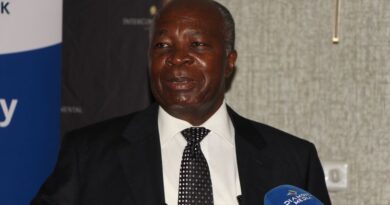Zambia’s Fuel Supply Crisis: Economic Expert Calls for Urgent Reforms
Zambia’s economic landscape is in dire need of a comprehensive overhaul regarding its fuel supply channels. Economic expert Kelvin Chisanga emphasizes that the current energy situation demands innovative strategies to create safety nets.
These measures are essential for fostering a conducive business environment, ensuring that both investments and households are shielded from the detrimental effects of inflation and the myriad challenges impacting key stakeholders.
Mr. Chisanga acknowledges that while the complexities surrounding fuel issues are multifaceted, it is crucial to focus on the management of the fuel supply chain. He points out that subjecting fuel supply models to monthly cost reviews has left the economy vulnerable, exacerbating existing challenges.
In Zambia, the fuel supply chain is hindered by several significant factors. Political instability, logistical challenges, and regional trade patterns all play a role, along with limited storage capacity.
Mr. Chisanga highlights the volatility of the U.S. dollar, which has a direct correlation with fuel prices. This instability is further compounded by geopolitical tensions, particularly the ongoing conflict in Ukraine, which has disrupted supply chains and heightened risks related to demand fluctuations.
He explains that various factors are interplaying within the fuel value chain, including potential cartel activities. Mr. Chisanga notes that the current forex and fuel markets often operate in tandem, with the U.S. dollar’s instability leading to increased inflationary pressures, particularly as oil prices remain high due to limited global supply since 2021.
The ramifications of these dynamics are significant. An unstable forex market and unreliable oil supply threaten to hinder economic growth, affecting both regional and domestic economies. He warns that rising food prices, driven by inflationary pressures, will exacerbate food insecurity, especially as access to affordable oil and fertilizer becomes increasingly challenging.
In conclusion, Mr. Chisanga argues that Zambia’s economy comprises numerous interrelated components that are impeding projected growth. The fuel management system has not stabilized over the past two and a half years, as businesses grapple with unpredictable fuel costs.
It is imperative that Zambia confronts these issues with urgency and determination. Mr. Chisanga asserts that recognizing the foundational role of fuel in production is vital for safeguarding economic stability. Without serious intervention, the negative effects on key economic fundamentals could become increasingly severe, threatening the nation’s overall prosperity.



